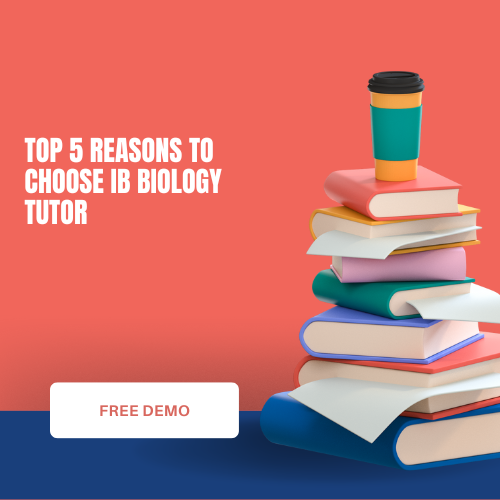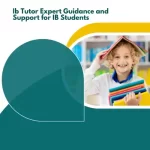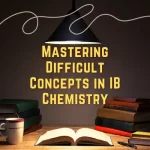Nature of the Extended Essay
The IBDP extended essay, popularly called as EE, is a mandatory component of the IB Diploma Programme, with the aims of equipping students to adopt a systematic approach to independent research on a focused topic of personal choice out of the IBDP subject choice lists. In addition to developing research and communication skills, EE helps to nurture creative and critical thinking throughout the constant journey of knowledge construction on the EE. There is a defined architect of writing the IBDP EE as prescribed by the IB EE guide.
Is IB EE Hard or Difficult?
The term ‘hard’ or difficult is very subjective. What is difficult for one student might not be the same for another. ‘Is EE hard’ is the common question which students come up with during their first footsteps in the IB Diploma Programme. The reasons for the overwhelming response to the IB extended essay coursework might be due to the preconceived schema or mental representations they possess from their seniors or different IB communities. While the opposite side of the picture is also true, where students share that what appeared to be intriguing in the initial stance, is no longer overwhelming now, for the simple reason that some precise and clear guidelines have been received from the IB mentors who might be EE supervisors and examiners.
The guidance of the IB experts matter the most, from whom you really get to know the common mistakes to be avoided in IB EE. Hence, before you start writing an IB EE get well versed with the IB EE assessment objectives and criteria.
IB Extended Essay Draft
Plan out the EE draft well with a detailed research on the arguments. Write the headings and subheadings and prepare your table of content. Once your table of content is ready, you will be set to define what you want to write in every paragraph. It is wise to write the body of the EE first and then move on to the introduction and conclusion. Often, students make an error of writing whatever they have gathered from the research sites and eventually customize the research question. Never do such thing. Your research question (RQ) is the hint for you to write your arguments in a cohesive manner, without getting deviated from the goal. Hence, refer to the research question every time.
The starting point is the right choice of title. Never follow the herd of your class mates in choosing comparable topics. Avoid collusion or replicating the same title in a different manner. What is ‘the right EE title’ for you, is unique to you as it should be from your IBDP subject and topic of passion with of course a large scope of research. Never choose topic which has not been deciphered as a research concept ever before. Your main source of research should be a reasonably large and reliable bank so that your EE title has a wider scope of research.
There are students who choose EE title, which is a trans-disciplinary concept of a multiple IB subjects. Though the title may seem to be exciting and doable, avoid such titles as it may entrap you in the web of arguments from different IB subjects which might at times be complicated and circuitous to handle. Hence, be pretty straight and precise in choosing the Extended Essay title from one IBDP prescribed subject which is already there in your subject combination. Moreover, the title should be clear, descriptive, short with the subject centric key words and key concepts infused. Avoid title which is sketchily stated and never write a title in the question form. Do not use personal acknowledgements as they may take away the scholarly nature, reliability and validity of the work, for personal acknowledgements are individualized claims or experiences which cannot count for evidence.
Let’s throw light on the RQ or research question extracted from the title. Never be generic with the EE research question. Always remember that your RQ should be clear, focused, narrow, and contestable question with command terms. Contestability clearly shows that it is a research question which welcomes different arguments and must be looked at from different perspectives.
Remember that your EE has a structured prescribed format. The well-studied architect, designed by the IB, is to be strictly followed without any deviation. The EE requires the defined components in the structure as the title page, abstract, contents page, introduction, body (development/methods/ results), conclusion, references and bibliography and appendices. Your EE should be original and authentic with a systematic referencing of cited sources.
The introduction should stick to the RQ, without being too verbose with the background information. It must have the statement of purpose or the intent-in other words, what you want to convey the reader with the description of the problem of why the title is an area of scientific investigation or contestability. State the hypotheses, hint on the argument and mention the sources of study to be used.
The body of the EE is the longest and the most important. This is where you need to develop your argumentative nature by stating claims and counter claims with substantial evidence. Keep yourself focused to your hypothesis and avoid descriptive anecdotes, for they no way count as evidence.
The conclusion should be a holistic summary, restating the hypothesis and pulling together or compiling the contestability of arguments used throughout. It needs to be balanced without any bias. No new stuff should be included in the conclusion.
Use of quotations is to be restricted as much as possible, except for substantiating an argument.
IB Extended Essay Assessment Criteria
Irrespective of the subject in which EE is registered, the general assessment out of a scale of 0-34 points,point out to a clear and concise RQ, introduction, investigation with appropriate methods and tools, comprehensive knowledge and understanding, logical and reasoned argument, application of analytical and evaluative skills, use of subject appropriate key terms and concepts, balanced conclusion, with a formal presentation of the RQ.
Adhering to the assessment criteria is momentous for which a solid support in terms of IB experience is needed. Remember than scoring an A is a combined effort of IB TOK essay and EE, each of which requires a 3. However, it is not only the score, EE is a gratifying experience for any IBDP student in preparing for any future research based coursework.
Moving up the mark band
Remember that an excellent EE is ‘the one’ which has the following:
- Topic is communicated clearly, appropriately, RQ clearly addresses the essay, title has wide scope of research (Criterion A-Focus and method-6 marks)
- Knowledge and understanding of the topic is clear, coherent, concepts are accurate and consistent (Criterion B- Knowledge and understanding-6 marks)
- The research question or RQ is excellently cohering to the relevant argument, every argument is bolstered by substantial evidence (Criterion C- Critical thinking-12 marks)
- Structure and layout is as prescribed with the 12 point Times Roman font size, double spacing, anonymous, page numbering, citation MLA/APA format, maximum word count is 4000, maximum size is 10 MB as required (Criterion D-Presentation-4 marks)
- Process and research focus is clear and precise. Reflections on decision making are evaluative with respect to challenges as well as there is a clear picture of intellectual and personal involvement (Criterion E-6 marks)





